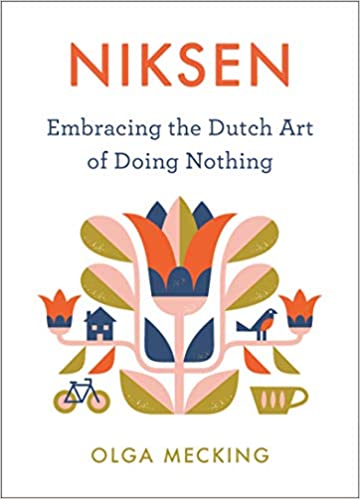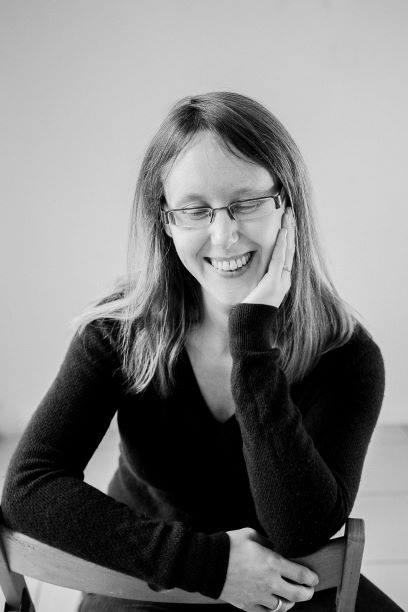
Thi is my second interview with successful Polish author, freelance writer and journalist Olga Mecking. In my first interview, we talked about how Olga’s accomplished amazing bylines by not sticking to a niche and writing about everything she cares about. You can check out the first one here: How to Follow Your Heart and Writing Dreams In Multiple Niches: Interview with Olga Mecking.

Today, we will talk about her book Niksen: Embracing the Dutch Art of Doing Nothing (aff.link), which has already been translated into 15 languages, including French, Dutch, German, Polish, Turkish, Korean and Indonesian.
What’s niksen in your own words? How did you first come upon it? And why did it appeal to you?
I think everyone defines niksen on their own terms, but it means doing nothing without a purpose. So not browsing your phone but staring out of the window. And not doing nothing because it’s good for you, but for the hell of it. Because it can often feel good. I saw an article in a Dutch magazine called Gezond Nu called Niksen is the New Mindfulness. As a language geek, I love how the Dutch had one word for doing nothing — something which in other languages would require two or more words. So convenient! And even though I am not a fan of wellness trends of any kind, this really spoke to me. Doing nothing can be good for us? How cool is that!
How do you niks yourself? How often? And how does it benefit you?
I usually niks on my couch. It’s pretty comfortable and has pillows and blankets. And sometimes I would read a book and then put it away for a while when I read a sentence that I really like. Or when I begin wondering what will happen next, I put the book away and then my thoughts will start running around in my head and bumping into other thoughts and create new ideas. That’s how I come up with my ideas for articles. I have no idea for how long or how many times I do nothing. It seems to be more of an in-between thing.
Can you tell us about your family life and how Niksen comes into play?
I’m a mother of three, I work from home. My life often feels busy with planning, organizing, setting up and remembering appointments. And also the taking the kids (or myself) to those appointments. For me, niksen plays several roles: it allows me to be creative and come up with new ideas that are usual and interesting. But I also use it as a sort of buffer. For example, I know I can’t fill in my days too much because I’ll be very tired, and I always need some space for when the kids will have problems, etc. And it allows me to rest and get ready for the next challenges (that will inevitably come).
You first wrote about niksen as articles, right? Can you share which one led to the book deal and how the process worked?
Yes, I wrote two articles. The first one was for Woolly Magazine, a fun and quirky wellness magazine, and it did really well. This was a trend piece, called tongue-in-cheekingly (if that’s even a word), “The Dutch Trend that’s Better than Hygge.”
The second one was called “The Case for Doing Nothing,” and was published in the New York Times a few months after the first one. And that was the one that started the whole thing. It had 150.000 shares a few days after it came out.
And it often happens to writers that when an article or essay goes viral, it gets the attention of agents or publishers. This has happened in my case. A Dutch publisher reached out to me and asked if I was interested in writing a book on Niksen, and I was so glad to be given this chance and took it. And I’m glad I did!
Niksen isn’t your first book-length project, but your first traditional publishing deal. Can you share your experiences, and compare and contrast between self-publishing and traditional publishing?
The differences between the finished product with traditional publishing versus self-publishing are not that big. Self-published books have become professionalized, and many writers hire book cover designers and editors to make their book look really good. The same can be said about the amount of work required. But the process is very different: With self-publishing, you have more control over your book, and you can make it look and feel exactly as you want it to look and feel.
Traditional publishing, on the other hand, especially if you have a big publisher, they have a team that does the design, layout, illustrations, etc. They do the cover and everything else! Many publishers will also have a marketing team that would find press opportunities for you. With self-publishing, you do it yourself.
But one is not worse or better than the other. Some people love having full control over their book. And many self-published books do really well, especially in the romance/fantasy/erotica genres. And I’ve met writers who were very creative with their marketing efforts. For me it was stressful to have to do every single element of my book (aff. link), and I was very grateful that I didn’t have to do the formatting with Niksen. They did a really great job with it. And a big plus of having an agent or a traditional publisher is that they often come with a foreign rights department that sells publication and translation rights to other countries. Niksen will appear in 15 languages all over the world! I wouldn’t be able to do it with a self-published book.
What are your future book projects, both fiction and non-fiction? Which publication route do you want to follow?
I’m currently working on a proposal for a parenting book of a slightly different kind. I hope to get a publisher interested in this one. But I’ve been working on a few fiction books too, and those I’ll probably self-publish. I have friends who are doing a combination of both depending on what the book is. I have friends who went indie after securing a book deal with a publisher. I’ve heard of self-published books get picked up by traditional publishers. It’s always good to have options.
How do you balance smaller freelance writing projects with longer, more complicated book writing?
I don’t. I didn’t do much freelance writing while working on Niksen; I just didn’t have the time for it. I had a tight deadline so writing the book was pretty much the only thing I could manage.
I know you aren’t a fan of shelling out advice as different things work for different people. But you are productive (you’ve got the bylines and future projects to prove it!). What are some habits and patterns that work for you? How and when do you produce your best work, do you think?
I think I like working in bursts, as opposed to continuously. As in an article or two here, then nothing for a while. It works for me because my husband supports me (I think it needs to be said), so I can work whenever I have ideas/assignments (these two things are not the same, lol). I like the NaNoWriMo approach for writing books. That is a certain amount of words by a certain amount of days (NaNoWriMo is 50K words in a month, 1666 words a day). I wrote the first (very terrible, no good) draft of Niksen in 6 weeks. I sat down every day and literally wrote words. I usually don’t plan a structure for my articles but did for Niksen, so I knew what I was going to write that day, and I wrote. And that was a nice feeling to have steady work for a longer stretch of time as opposed to the few days that I spend on my articles.
But no, I don’t write every day, just when I have an assignment. I like having projects that occupy my mind for a while but then end and allow me to focus on something else. I don’t stick to a niche either. I have a wide range of interests and like combining things in unusual ways. An example: becoming a mother is like having culture shock. Or flipping the narrative on a topic. Most people following their spouses abroad are women, but what about the men? And when everyone was writing about not wanting to share pictures of their kids on social media, I did that too. Only my reason was different: not my kids’ privacy, but because I liked my social media accounts to be just mine. Sometimes this approach takes a long time. My NYT essay about being a mother took maybe 2 weeks to write (one of my longest), but it was months before I had all the elements for that story and before it made sense!
But this is also where Niksen comes in. Because my ideas wouldn’t be so unique without it.
*
What do you think about niksen? Do you do it? Please share your thoughts and experiences in the comments.